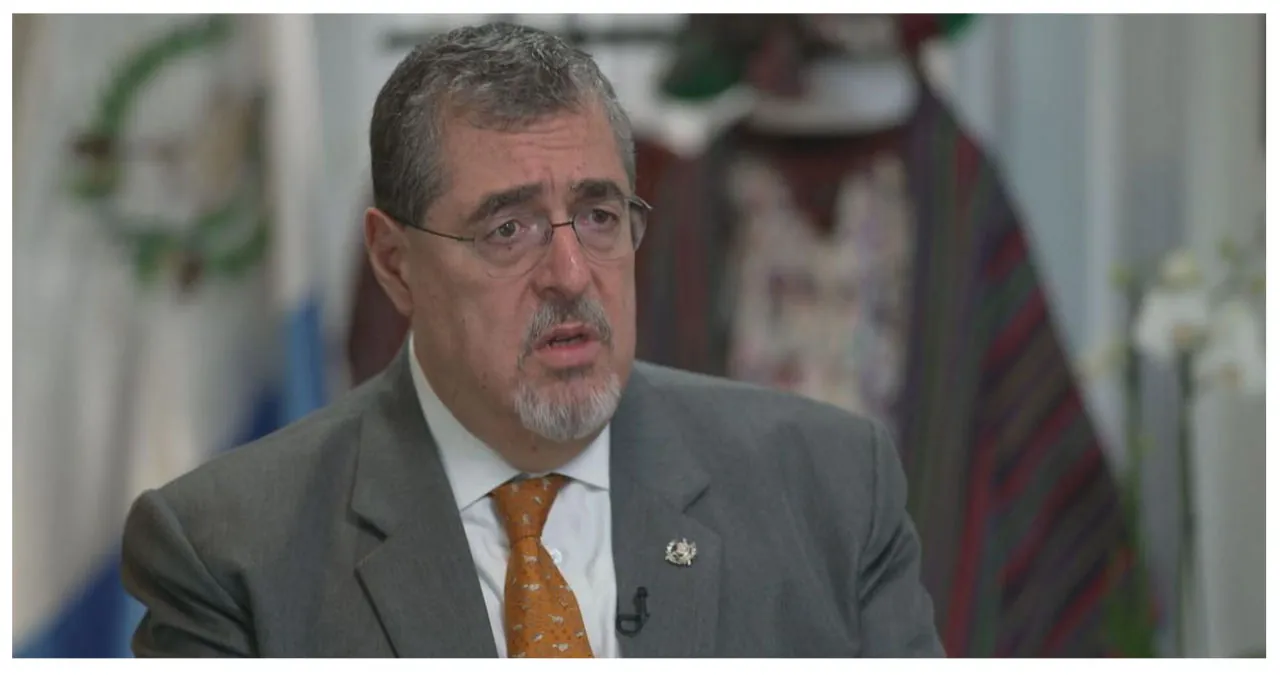Guatemalan President emphasized that cooperation goes beyond financial aid. Instead, it involves creating an environment that attracts foreign investments and encourages the establishment of factories, ultimately generating employment opportunities. In an interview with CBS News, he stated, “Cooperation is not just about sending money. It’s about fostering conditions that invite you to invest in Guatemala and initiate production, ultimately leading to job creation. This is our primary focus.”
Arévalo emphasized the importance of enabling individuals to exercise their right to stay in their communities. She stressed that people should have the freedom to remain in their current locations and should be provided with opportunities to thrive.
President Biden has assigned Vice President Harris with the responsibility of addressing the underlying factors that contribute to migration during the initial stages of their administration. This decision was made in response to a significant increase in illegal border crossings following four years of stringent border security policies under former President Donald Trump. As the U.S.-Mexico border braces for another busy spring, the Biden administration is actively exploring the possibility of implementing executive actions to reduce these crossings if Congress does not pass a bipartisan plan that was previously negotiated by senators.
Vice President Harris is taking direct action on the politically delicate issue as she announced on Monday an additional $170 million in economic development and security assistance for Guatemala. Furthermore, the administration has launched a public-private partnership that plans to bring in an additional $1 billion of private investment into the country, in addition to the $5.2 billion that has already been committed.
Arévalo appreciated the investments as a viable long-term solution to discourage emigration from his country and expressed his desire to maintain such collaborative efforts. However, he did not rule out the possibility of working with a potential second Trump administration.
Arévalo expressed his anticipation for collaborating with the victor of the upcoming election to ensure that residents of the United States, including our citizens, can fully exercise their rights.
When asked about his opinion on whether Trump’s preference for border walls is effective, he responded by stating, “I believe that history has proven that they are not. We should instead focus on finding comprehensive solutions for a problem that is much more intricate than simply erecting a wall in an attempt to control it.”
“Corruption is the most urgent problem”
Arévalo, 65, comes from a diplomatic background, having served as a diplomat and sociologist. He is also the son of the late former Guatemalan president Juan José Arévalo, who held the distinction of being the country’s first democratically elected president from 1945 to 1951.
In January, the younger Arévalo assumed office following a remarkable campaign focused on combating corruption. Despite facing well-known and well-financed opponents supported by the political and economic elite, he emerged victorious, effectively dismantling the long-established conservative political establishment of the country. However, his adversaries, who hold power in the judiciary, persist in their attempts to prosecute him and his political party, alleging election manipulation in the previous year’s elections—a claim he vehemently denies.
According to Arévalo, the most pressing issue is corruption, as he stated, “We believe that corruption is the most urgent problem.” However, he also emphasized that development is the most crucial problem. He explained, “But the most important problem is development.” Arévalo further emphasized the interdependence of these two issues, stating, “But if we do not fight corruption, we are not going to be able to get the development that we need so that people can flourish and stay.”
Guatemala’s government is undergoing a transformation, with efforts to restore democratic values taking center stage. In line with this mission, Arévalo expresses his support for the release of journalist José Rubén Zamora. Under the previous administration of President Alejandro Giammattei, Zamora was convicted of money laundering and sentenced to six years in prison in 2023.
Zamora’s newspaper, “El Periódico,” extensively covered incidents of corruption within the Giammattei administration. However, following Zamora’s detention, the newspaper was compelled to cease its operations due to insufficient resources, and its journalists had to flee the country to avoid potential prosecution. This case has garnered significant global attention and has been strongly condemned by various international journalist rights organizations.
Arévalo expressed hope that Zamora would be released the following day.
On his Inauguration Day, Arévalo expressed his commitment to improving the conditions under which Zamora was being held by ordering the head of the country’s prison system to initiate reforms. Although the president is in favor of the journalist’s release, he clarified that he does not have the authority to set a specific date for his release due to the separation of powers outlined in the Guatemalan Constitution.
“We understand that the accusations are not being taken seriously,” he stated. “However, we are unable to intervene in the Court of Justice’s decision-making process, leaving us uncertain about the outcome.”

